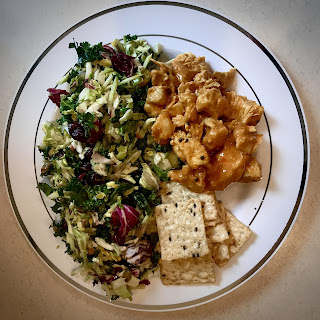Food Choice - Convenience

Convenience is a huge factor in our decision making process. So how can we make eating healthy more convenient? 1) Make extra dinner. If you’re going to take the time to make a healthy dinner, go ahead and double the recipe and eat the second half for lunch the next day. So for example, if you’re making a chicken breast with rice and veggies, make 2 chicken breasts and double the other portions. That way you have a healthy, already made lunch the next day. 2) Food prep. Certain foods can be started at the beginning of the week. For example, you can make a batch of pizza dough, and then separate it into 7 different balls to be made into crusts each day. Then when it’s dinner time, it’s just baking the crust for 10 min, then adding toppings and baking until toppings are fully cooked and cheese is bubbly (usually 15 min). 3) Shortcuts Use shortcuts when making food. Things like canned or frozen vegetables are great since you can just pop them in the microwave and they’re done quickly.


